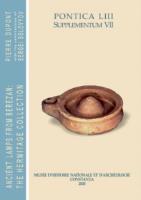Is There a Temptation of the Void Space in Opus Postumum?
Is There a Temptation of the Void Space in Opus Postumum?
Keywords: space; matter; ether; gravitational attraction; driving forces; experience;
The Kantian Opus postumum can be seen, in general, as a metaphysical extension of some critical topics such as space, time, matter, substance, God, which in the Critique of Pure Reason have been treated in order to satisfy the requirements of a phenomenological knowledge. The present text deals with the rethinking of space in relationship with matter and in its absence, as a void space. In the form of sensible intuition defining space, the objects of the external senses are given to us, primarily in intuition, which the intellect relates through synthetic unity to the unity of the diversity of these a priori intuitions, a unity which is thought in their composition; it is not a form of our thinking, but an intuition of that which is nothing outside of our thinking and representation, and must be filled with matter, to repel the void space, which is in conflict with the original gravitational attraction. Its role is to understand, with the help of the ether, the phenomenon of the driving forces of aggregation, through the system of the connection of the diverse of these forces; so that, finally, to achieve the unity of the possible experience, after giving up the metaphysical temptation of the void space.
More...
